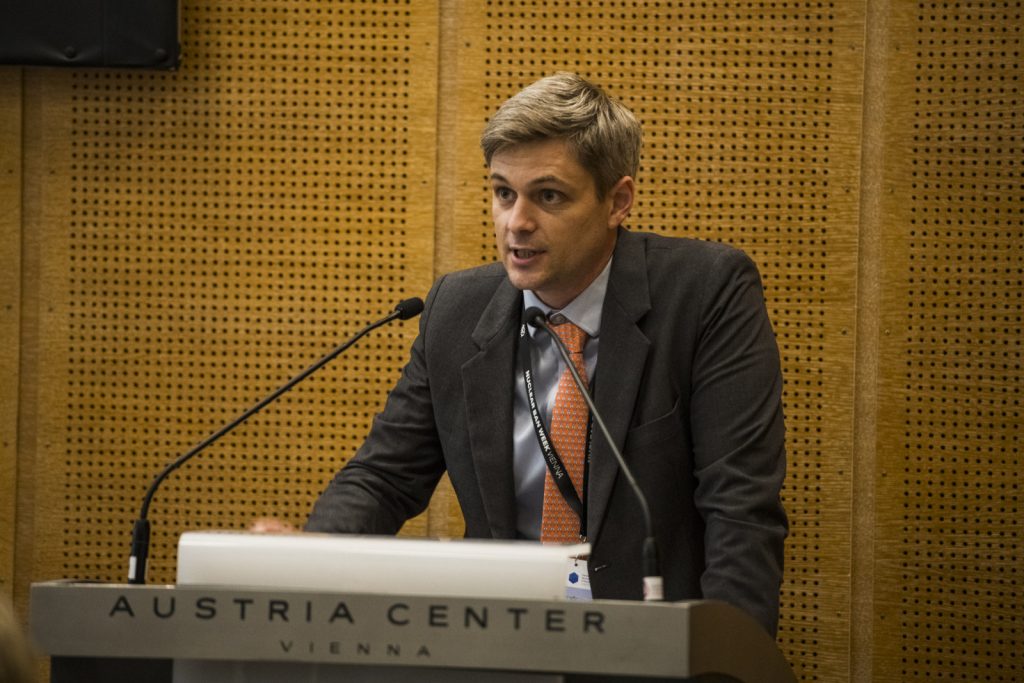
War is raging in Ukraine and tension among nuclear-armed states is extraordinarily high. For the first time in many years, we are faced with the very real and deeply concerning possibility of a nuclear weapon being used in conflict.
In 1945, it took just two atomic bombs — small by today’s standards — to obliterate the Japanese cities of Hiroshima and Nagasaki, killing more than a quarter of a million people. We must do everything in our power to prevent such an atrocity from ever being committed again.
Last month, the Bulletin of the Atomic Scientists moved the minute hand of its Doomsday Clock to 90 seconds to midnight, a sobering wake-up call to humanity. The world is teetering on the brink of catastrophe and urgent action is needed for peace and disarmament.
It is unacceptable that nine countries continue to possess close to 13 000 nuclear weapons between them, threatening every country’s security. No one is immune to the devastating harm that these most horrific weapons could unleash at any moment.
If even a single nuclear weapon were used today, the dead and injured would number in the hundreds of thousands, possibly the millions, and the consequences would be felt well beyond the war zone in which the weapon is detonated.
Radiation, which is silent and invisible, would cross national boundaries. Millions would flee the area of impact, seeking haven in other countries. Humanitarian organisations would be powerless to respond in any meaningful way to the horrifying aftermath of the attack.
Even more alarming, other nuclear-armed states might opt to use their own nuclear forces in response, resulting in a nuclear exchange with a massive death toll. Soot from burning cities would block the sun’s rays, leading to widespread agricultural collapse and famine.
This is the stark reality of what nuclear weapons can do and are designed to do. Thousands are poised for use at any moment — in missile silos, on submarines, on bombers — at about a hundred locations. The only way to prevent their use is to eliminate them.
A moment of international crisis like the present can galvanise action — and it has to — action to rid the world of this menace once and for all and build lasting peace among nations. We must urgently end the arms race and start a race for disarmament.
Six years ago, the international community took a major step in this direction by adopting the Treaty on the Prohibition of Nuclear Weapons, or TPNW. One hundred and twenty-two states supported the adoption, including forty-two states in Africa.
African states are rightly proud of the role they played in the TPNW’s negotiation and adoption and their principled leadership serves as an inspiration to others. Fifteen African states have already signed and ratified it, a further 18 have signed the treaty as a first step towards becoming parties, and all African countries have expressed their support for the treaty at the United Nations.
Civil society organisations across the continent are also working tirelessly to raise public awareness of the TPNW and promote its universalisation.
Each new signature and ratification makes the TPNW stronger. It strengthens the global norm against the use and possession of nuclear weapons, contributing to international peace and security. It makes nuclear war less likely.
Last June, those party to the TPNW pledged not to rest “until the last state has joined the treaty, the last warhead has been dismantled and destroyed, and nuclear weapons have been totally eliminated from the Earth”.
We must not allow the nuclear-armed states to continue wielding, for decades to come, what Nelson Mandela once described as “terrible and terrifying weapons of mass destruction”.
They are not entitled to do so and never have been. On the contrary, they are legally obligated under the Nuclear Non-Proliferation Treaty to pursue negotiations in good faith for nuclear disarmament and have failed to fulfil that requirement, undermining everyone’s security.
As more and more states join the TPNW, those states that still cling to these despicable weapons will feel more and more pressure to live up to their legal obligations and conform to the new international norm.
Peace can never be achieved through the ever-present threat of mutual annihilation. It is high time that the so-called “Great Powers” of the world moved beyond this Cold War mentality and the deeply flawed concept of deterrence.
There is nothing great or clever or strategic about threatening to obliterate cities. In fact, to quote Setsuko Thurlow, a survivor of the US atomic bombing of Hiroshima: “The development of nuclear weapons signifies not a country’s elevation to greatness, but its descent to the darkest depths of depravity.”
An international system where a small handful of states can wield civilisation-endangering weapons – while occupying permanent seats at the UN Security Council and dictating to others what to do and not to do – is manifestly unjust. It is what the late Desmond Tutu once called “nuclear apartheid”.
As he wrote in 2011, “We must not tolerate a system of nuclear apartheid in which it is considered legitimate for some states to possess nuclear arms but patently unacceptable for others to seek to acquire them. Such a double standard is no basis for peace and security in the world.”
The TPNW brings an end to this double standard. It fills a gap in international law. It applies the same rules to all states, regardless of their size and “status” in world affairs. It promises not only a more peaceful future, but also a fairer one.